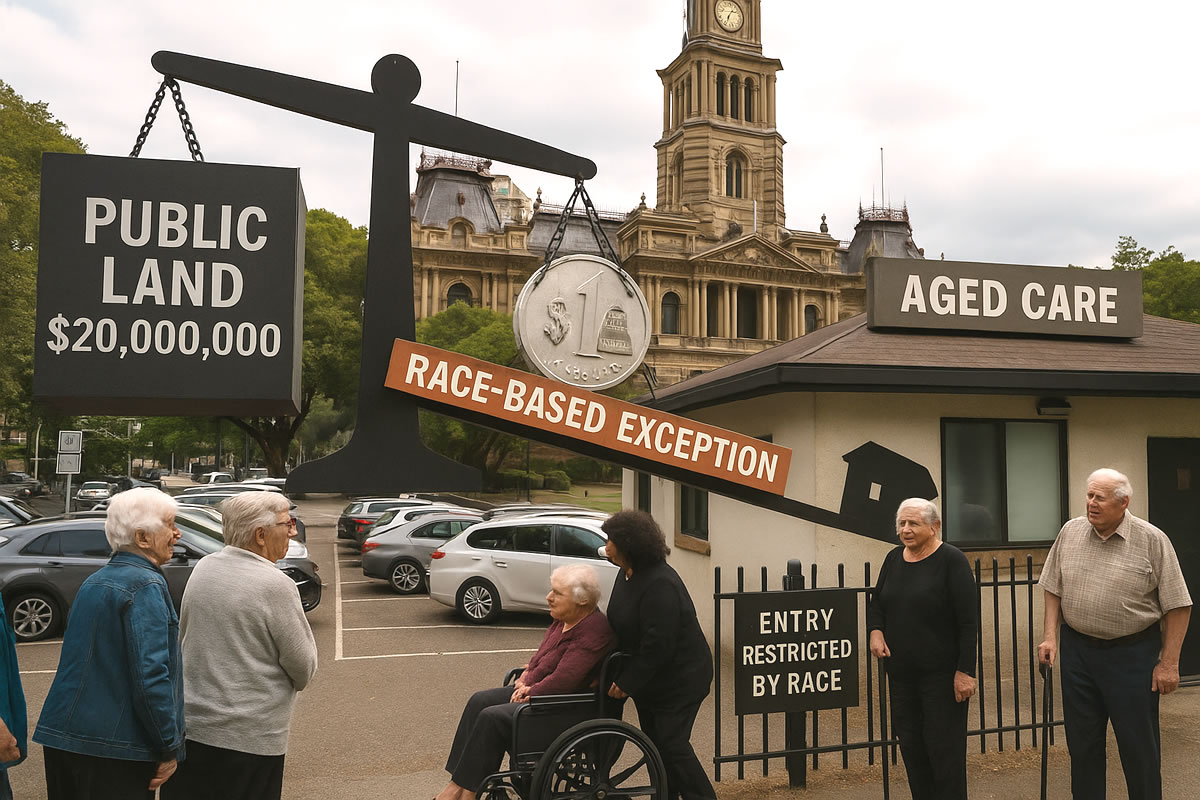In an age increasingly dominated by ideological narratives and identity politics, the concept of meritocracy deserves renewed examination. Meritocracy, by its classical definition, is a system wherein individuals succeed based on their abilities, efforts, and achievements rather than on the circumstances of their birth, their race, their gender, or any other immutable characteristic. In Australia—a nation built on egalitarian values and the pioneering spirit of those who sought a “fair go”—meritocracy is not merely a theoretical ideal but a foundational principle.
Coined satirically by British sociologist Michael Young in his 1958 work “The Rise of the Meritocracy,” the term was initially intended to critique a society obsessed with intelligence and effort, suggesting such a system could create a new form of elitism. Yet, despite its satirical origins, meritocracy has been broadly embraced as a counter to nepotism, aristocracy, and institutionalised inequality. It resonates deeply in cultures, like Australia’s, that value personal responsibility, hard work, and the idea that success should be earned rather than inherited.
Historically, meritocratic principles can be traced to the civil service examinations in ancient China, where scholars were chosen based on their knowledge rather than their lineage. Similarly, the Enlightenment and later revolutionary periods in Europe placed emphasis on individual rights and rational achievement. Napoleon Bonaparte championed the idea that careers should be open to talent, not birthright. The meritocratic ideal, in these contexts, was a radical departure from feudal hierarchies and caste-based privileges.
In modern Australia, this principle underpins many of our core institutions. The public education system, higher education access, and professional credentialing all attempt to uphold meritocratic standards. Government scholarships, university entrance exams, and public sector job competitions are theoretically blind to identity and focused instead on performance. But in recent years, this foundation has been quietly undermined.
One of the primary threats to meritocracy today is the rise of Diversity, Equity, and Inclusion (DEI) policies. While these initiatives are often portrayed as compassionate or progressive, they fundamentally shift the basis of opportunity from individual merit to group identity. Policies that prioritise race, gender, or sexuality in hiring, promotion, or university admissions directly contradict the notion that the most qualified person should get the role. They introduce a form of soft discrimination that, ironically, perpetuates the very inequalities they claim to solve.
The consequences are significant. In higher education, academic standards are being diluted to accommodate quotas. In corporate environments, hiring managers are increasingly pressured to meet diversity targets rather than recruit based on competence. This shift not only undermines the quality of institutions but also sows division. When people believe that success is no longer earned but allocated according to demographic boxes, trust in the system erodes.
There is also a psychological cost. A meritocratic society gives individuals the hope that hard work and talent can overcome disadvantage. It empowers citizens to take charge of their destinies. Conversely, a system fixated on equity fosters resentment and fatalism. Individuals who are passed over despite superior qualifications feel justifiably aggrieved, while those selected through preferential treatment are often burdened with impostor syndrome or perceived as less competent.
Australia’s Indigenous reconciliation policies provide a case study in the complexities of balancing historical redress with meritocratic fairness. Programs that offer special access to education, jobs, or contracts based on Aboriginality can help address past injustices. But they must be carefully calibrated. When race-based advantage is extended indefinitely, without accountability or merit thresholds, it risks creating a new class of untouchables, immune to criticism or competition. True reconciliation should aim to equip all Australians with the tools to compete on equal footing, not to institutionalise permanent difference.
Moreover, the rhetoric surrounding equity often obscures its practical effects. The term “equity” is frequently conflated with “equality,” yet the two are not synonymous. Equality means treating people the same; equity means treating people differently to achieve a desired outcome. In practice, this means levelling the playing field not by raising everyone up, but by lowering the standards for some. That approach is inherently unjust.
Another point of tension is the role of education. Australia’s education system was once a great equaliser, offering bright students from all backgrounds a pathway to success. Yet recent reforms have chipped away at academic rigour in favour of social engineering. The New South Wales selective school system, for example, has faced criticism and reform pressure because it “lacks diversity” in student composition. Instead of addressing root causes—like disparities in early childhood education or parental support—some propose adjusting admission standards to produce more politically palatable demographics. That is not meritocracy; it is social manipulation.
The media and cultural elite also play a role in eroding meritocratic values. By constantly highlighting disparities in outcomes and framing them as evidence of discrimination, they ignore the complex interplay of culture, effort, and individual choice. Not all inequality is unjust; not all disparities demand correction. A society that recognises this can maintain cohesion. One that insists on equal outcomes, regardless of merit, invites conflict.
To be clear, meritocracy is not about denying support to those who face genuine barriers. It is about ensuring that assistance aims to elevate individuals to a level where they can fairly compete—not to bypass competition altogether. Targeted tutoring, access to better schooling, and mentorship programs are meritocratic in that they build capability. Quotas and identity preferences are not. The distinction is crucial.
Preserving a meritocratic society also means defending freedom of speech and inquiry. In a healthy meritocracy, ideas rise or fall on their merits. But increasingly, dissenting views—especially those critical of DEI orthodoxy—are silenced. This intellectual stifling is antithetical to the very idea of progress through reason. A culture that rewards conformity over courage cannot be meritocratic.
So, what can be done to restore and protect meritocracy in Australia?
First, we must recommit to the principle that individual character, competence, and effort matter more than group identity. This requires cultural courage—a willingness to challenge prevailing narratives and to call out policies that reward anything less than excellence.
Second, we must demand transparency and accountability in all public and private sector hiring, admissions, and funding decisions. Criteria should be clear, objective, and open to scrutiny. Where race, gender, or sexuality are used as selection factors, that must be publicly acknowledged and justified, not hidden behind euphemisms.
Third, educational standards must be restored and safeguarded. Selective schools, university admissions, and professional exams must remain rigorous and blind to background. Let success be determined by performance, not profile.
Finally, we must teach the next generation the value of merit. Young Australians should be raised to understand that their future lies in their own hands—that discipline, perseverance, and ambition will take them further than victimhood or entitlement ever could.
In a world increasingly divided by tribalism and grievance politics, meritocracy is more than just a policy preference. It is a moral imperative. It is the fairest way to organise society because it recognises the inherent dignity and potential of every individual, not every identity group. And in Australia, it is the only way to preserve the egalitarian spirit that has long defined our national character.
We owe it to ourselves—and to the generations to come—to defend this principle with clarity, courage, and conviction.






